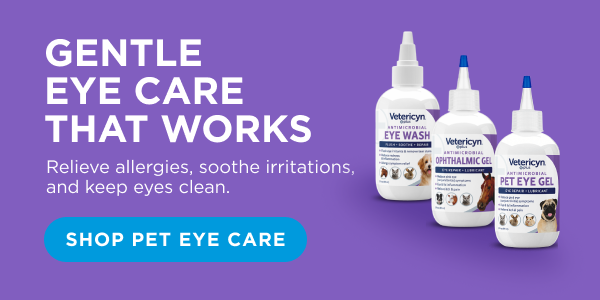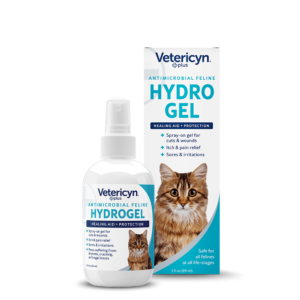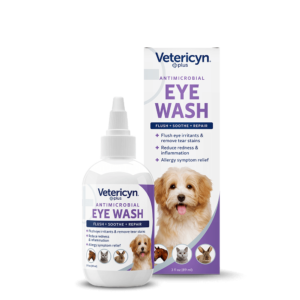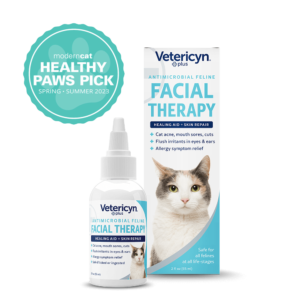Updated April 11, 2025
Your cat’s eyes are adorable, striking, and basically purrrr-fect. But when you see watery, gooey, or red eyes, it could mean there’s a cat eye infection. A trip to the veterinarian is necessary, but before you go, at home treatment can help manage symptoms.
Signs of an Eye Infection
In cat eye infections, bacteria, viruses, or other things cause pain, swelling, and redness of the skin around the eyes, the eyelids, and the tissue that covers the inside of the eyelids and the surface of the eye, formally known as conjunctiva. Swelling of the conjunctiva is called conjunctivitis, informally known as pink eye.1
It’s not contagious to you or your dog, but other cats may get it. Eye infections in cats can spread quickly among felines, so it’s important to address them promptly. These are the symptoms you might see:
- Watering (clear or thick, white, green, or yellow fluid)
- Too much blinking
- Squinting
- Swelling and redness
Your cat might also be:
- Head rubbing against furniture and other objects
- Sneezing (with or without discharge from the nose)
If the only symptom you notice is watery eyes, it could be irritation from dust, allergens, or something else in the environment. However, if one or both eyes have been watering for a few days, if the tears are thick or discolored, or if your cat is sneezing, these could be signs of an eye infection.
First Steps Before the Vet
Diagnosing cat eye infections early is crucial. Contact your veterinarian, who can find out what’s causing your cat’s eye problem and recommend the best treatment. In the meantime, there are things you can do to help your cat start to feel better right away.
Do not use anything made to treat human eye problems on your cat. You don’t want to make anything worse. Infections can be worsened by inappropriate treatment. Use a gentle, non-toxic product that won’t hurt your cat or be harmful to you. Anything you use on your cat’s eye may get into their mouth, too, so using something safe if it’s accidentally swallowed is key.
Vetericyn Plus Antimicrobial Eye Wash gently removes dirt and debris that may be part of your cat’s eye problem. It stops pain and itching right away and kills viruses, bacteria, and other things. It doesn’t have alcohol, steroids, or antibiotics, so it won’t sting the eye or hurt your pet if it’s swallowed by mistake. The eye wash works for dogs, too!
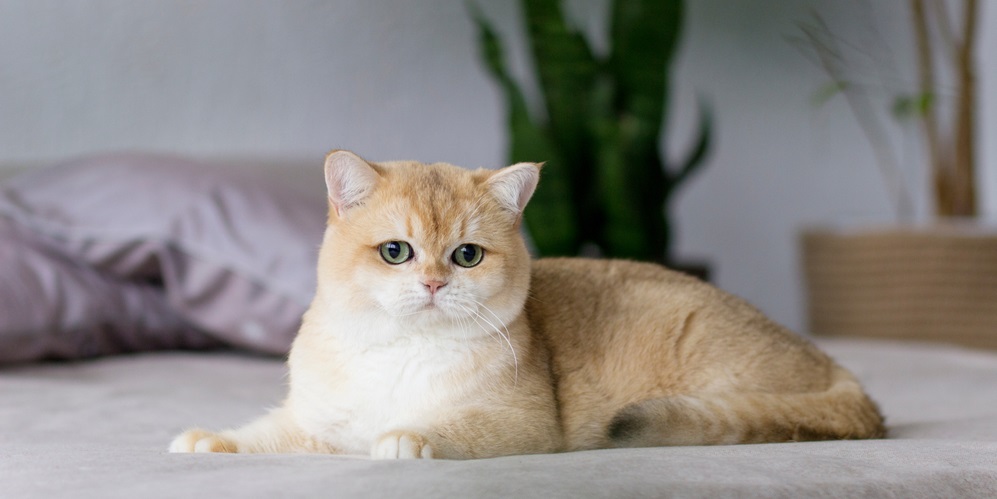
How It’s Done: Easy and Effective
- Softly hold your cat’s eyelids partly open, one eye at a time.
- Hold the Vetericyn Plus Antimicrobial Eye Wash a few inches above the eye and gently drip it over the eye. (Keep the tip of the bottle away from the eye. Don’t touch the eye with the bottle, your finger, or anything else.No need to rinse.)
- Reward your cat with a special treat.
Repeat 3 to 4 times a day until your veterinary appointment for effective treatment. Tell your veterinarian what you did to help your pet feel better before the appointment.
All that eye irritation, pain, and itching makes cats scratch and rub their eyes and faces for relief. But that can cause painful, itchy, and infected sores on their face. Don’t worry; Vetericyn Plus Feline Antimicrobial Hydrogel—a soothing, thicker gel formula—will help heal those skin sores, too.
What to Expect at the Vet
Your veterinarian will ask questions about when the symptoms started, if they’re getting better or worse, if any other problems are present, and whether your cat stays indoors or goes outside.
A physical exam is next, followed by tests specific to the eye like checking for a scratch on the cornea, enough tears, and normal eye pressure. These tests don’t hurt your pet, however, they help the veterinarian rule out cat eye problems that can be caused by underlying diseases and determine the best treatment.
By now, your veterinarian has a good idea of what’s causing the problem, but more tests are needed sometimes. Your veterinarian will likely give you medicine to put in your cat’s eyes a few times a day for the next few days. Sometimes, additional medicines are needed, too.
They’ll want to check your cat again after a week or two to be sure everything is clearing up.
Eye-dentifying the Causes
Feline Herpesvirus (FHV) is the most common culprit behind cat eye problems. It doesn’t spread to people or dogs, but it can spread to other cats.2
Viruses, bacteria, foreign bodies, trauma, debris, skin disease, allergies (to food and environmental allergens), systemic diseases, and other things can also lead to eye problems in cats.
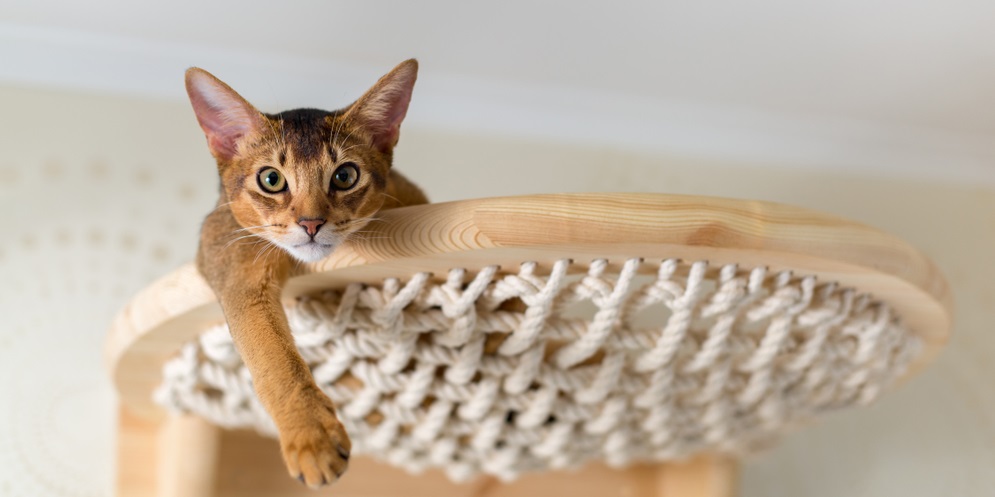
Preventing Eye Issues
If Feline Herpesvirus is the cause of your cat’s eye infection, keep your cat away from others and minimize their stress. The immune system plays a key role in recovery from viral infections, so keep your cat as healthy as possible. Prioritize regular veterinarian visits and be sure vaccinations are up-to-date. Feed quality, vet-approved food, and provide fresh, clean water continuously. Make playtime interesting and share cuddles – if your cat is into that!
Your veterinarian may also recommend using an air purifier, removing air fresheners, switching to mild laundry products, and changing your cat’s food to stop environmental allergens and irritants from bothering your cat’s eyes.3
A gentle cleaning routine for your cat’s face can stop another event before it starts. Vetericyn Plus Feline Antimicrobial Facial Therapy is a non-toxic, antimicrobial formula that cleans the area, preventing common issues in cats’ eyes, nose, mouth, and ears. That means a happy cat and fewer trips to the vet!
A Clear View: Wrapping It Up
Visiting the vet is the best prescription for any cat health problem. But you can take safe and effective action at home to help your pet feel better faster. Be gentle. Use safe products with proven results.
Find us in a store near you, or shop our pet care products to keep your cat’s eyes captivating, clear, and infection-free. Visit Amazon, Petco, and Chewy to shop your favorite Vetericyn products today!
 Reviewed by Dr. Kathy Adamson
Reviewed by Dr. Kathy Adamson
Dr. Kathy Adamson earned her bachelor’s degree from the University of Notre Dame and her Doctor of Veterinary Medicine degree from the University of Wisconsin-Madison School of Veterinary Medicine.
She completed a one-year small animal medicine and surgery internship at the North Carolina State College of Veterinary Medicine. Alongside her studies, Kathy worked in a research lab, contributing as an author and co-author to various journal articles.
She has also pursued medical writing and editing certification through the University of Chicago Graham School. Currently, she runs KMA Veterinary & Medical Writing, a freelance medical writing company, serves as the Digital Content Manager for the Greater Chicago Area Chapter of the American Medical Writers Association, is a member of the AMWA Communications Committee, and enjoys writing about healthcare topics for people and their cherished pets.
![]() https://www.linkedin.com/in/kathyadamsondvm/
https://www.linkedin.com/in/kathyadamsondvm/
Sources:
- Gelatt K. Disorders of the Conjunctiva in Cats Merck. Updated 2024. Accessed February 11, 2025. https://www.merckvetmanual.com/cat-owners/eye-disorders-of-cats/disorders-of-the-conjunctiva-in-cats
- Rothrock K. Feline Herpesvirus Infection Veterinary Information Network. Updated 2020. Accessed February 11, 2025. https://www.vin.com/members/cms/project/defaultadv1.aspx?pid=607&id=5419219&f5=1
- Editorial P. 6 Things in Your House That Could Be Triggering Your Pet’s Allergies PetMD. Accessed February 11, 2025. https://www.petmd.com/6-things-your-house-could-be-triggering-your-pets-allergies
